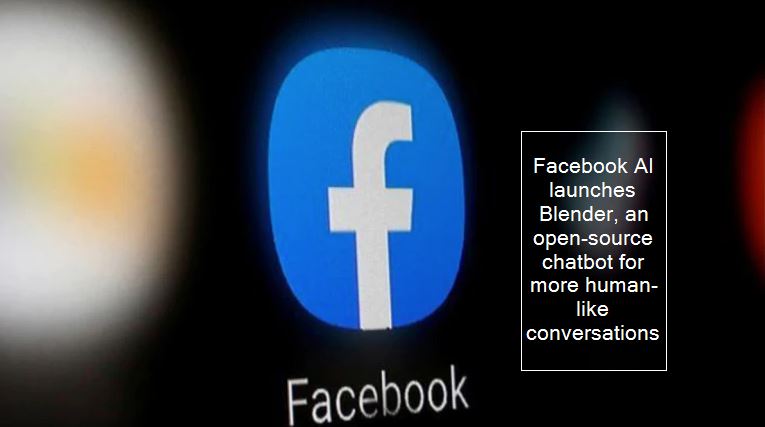Facebook AI launches Blender, an open-source chatbot for more human-like conversations
Facebook has launched Blender, a chatbot designed for more human-like interactions. The bot is designed for in-depth conversations with humans.
Facebook’s AI has built an open-sourced Blender, the largest, open-domain chatbot, the tech giant’s blog noted.
It has been trained on 9.4 billion parameters — nearly 4 times as many as Google’s Meena and more than 10 times as many as the previous largest OS chatbot available on the internet, Engadget reported.
Facebook stated that Blender is the first chatbot to build a diverse set of conversational skills which include empathy, knowledge and personality in one system.
The bot in terms of engagement feels “more human” according to human evaluators, the blog noted.
To feel more human-like, the bot is designed in such a way that it can assume a persona, discuss nearly any topic, and show empathy — in natural, 14-turn conversation flows.
Facebook stated the composition used in making the AI. The bot uses transformer neural networks on large amounts of conversational data.
Facebook stated that the chatbot uses previously available public domain conversations that have 1.5 billion training examples of extracted conversations.
“Our neural networks are too large to fit on a single device, so we utilized techniques such as column-wise model parallelism, which allows us to split the neural network into smaller, more manageable pieces while maintaining maximum efficiency,” Facebook stated.
[amazon box=”B07SDFC9QT” “small”]
Stephen Roller, a research engineer at Facebook’s AI lab (FAIR) told Engadget “There are a lot of sophisticated techniques that you have to use in terms of how you chop this thing up. If you split it over different devices and chop it up like the wrong way, then you’re going to lose that efficiency that you have and you’re not going to be able to scale to these terabyte-sized data sets that we’ve been working with.”
Facebook said that it has introduced Blended Skill Talk (BST) for training and evaluating desirable skills like the use of personality, knowledge, and display of empathy.
Further in the composition goes beam search, token sampling and n-gram blocking.
“To make sure conversational agents don’t repeat themselves or display other shortcomings, researchers typically use a number of possible generation strategies after the model is trained,” Facebook notes.
To test the bot, it was kept against Meena, Google’s chatbot which has not been released yet. The blog states that human evaluators were shown a series of dialogues between humans paired with each respective chatbot.
After being presented with Meena in action and Blender in action, 67 percent of evaluators concluded that Blender sounds more human.



